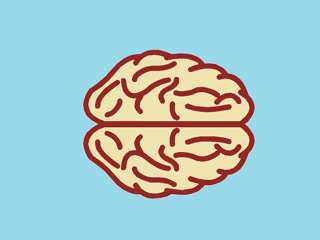
A little about me—I took the new MCAT exam in Spring 2016, when it had just recently started being offered in place of the old MCAT exam. I spent a lot of time wondering: how do I prepare for this exam, when so little preparation material is out there specifically for the new exam? At times I felt like I was just spinning my wheels, trying to understand material that was not particularly important for actually performing on the real thing.
Many of the test prep materials out there for the MCAT are influenced by the way the MCAT used to be, instead of representing how it is now. So, how do you prepare for this exam? Each section is unique, but here I’m going to focus on the natural science sections, “Biology” and “Chemistry/Physics.” While these sections do have differences, these suggestions apply to both.
Biochemistry for the New Exam (will be a subsection)
They say that the new test emphasizes biochemistry. What does this mean? Do I need to take several in-depth biochemistry courses to be prepared?
The new emphasis on biochemistry is definitely a real thing, and it applies to both the Biology and Chemistry/Physics sections. But this does not mean you need to have a super in-depth understanding or memorize a million obscure facts about biochemistry to do well on the exam.
Well, what do I need to know, then?
1. Know your amino acid structures
You need to know your amino acid structures, up and down. You are virtually guaranteed to face a significant amount of questions that will require you to know, for instance, whether a particular amino acid has a positively charged or negatively charged side chain, and to apply this knowledge to a given question.
2. ..and your major experimental techniques
You need to know about major experimental techniques used related to biochemistry, like gel electrophoresis and chromatography. Often, questions about these techniques will also involve your knowledge of amino acid structure.
3. ..and don't forget those enzymes.
You need to know about different types of enzyme classes, their kinetics, and especially how to interpret data related to enzymatic activity.
While this is not intended to be an exhaustive list, these are topics that are virtually guaranteed to make an appearance on your exam.
Old vs. New MCAT: Which material matters?
What types of questions will I see on the new test? How are they different from the old test?
Most questions will not solely involve simple recall of information. They will provide you some background information, including charts and data about biochemical or biomedical experiments, and then will ask questions about what the data mean.
What does this mean for me?
It means you really need to practice reading passages and answering questions instead of just reading test prep books or memorizing equations. The “plug-and-chug” questions of the old MCAT, which involved recognizing the right equation that needed to be used for a question and then just plugging in the values, will be rare.
Okay. Do I still need to know about physics equations or organic chemistry rules to do well?
The short answer: only a little bit. They aren’t likely to ask you about a detailed organic chemistry mechanism, or the complicated equations related to flux. Instead, they’ll want you to know a basic principle from these disciplines, and then apply them in a medical context: if a blood vessel narrows, what happens to blood flow through the vessel?
As a rule of thumb, if you don’t know how an equation/passage/concept might apply within a biomedical context, it will not be a high-yield or important topic on the new MCAT. Unfortunately, many passages from test prep materials do not always adhere to this rule of thumb, in part because they were inspired by the old exam.
How to Study Smart
DO: Focus on your ability to interpret passages and data tables in practice questions. If you’re struggling to do this at all or to do it quickly, return to the basics on a passage-specific basis—read textbooks, watch videos, or ask your tutor about a topic. Then go back to the exact same passages with what you’ve learned, and make sure you’ve really learned it.
DON’T: Spend too much time reading textbooks, especially if it’s a topic you’re already reasonably familiar with. Instead, find where your knowledge gaps are from doing practice passages, and then fill in the gaps as necessary. (I read through whole textbooks to begin my studying, and lots of it turned out not to be very helpful in the end.
DO: Learn about amino acid features, enzymes, and experimental techniques in biochemistry—these are all over the new exam!
DON’T: Spend too much time memorizing isolated facts or equations, especially if they don’t have an obvious relationship to medicine. Instead, think about how they could apply within a biomedical context and the types of questions that the new MCAT might ask about the topic. The best way to get a feel for this is through the AAMC practice exams.
To sum it up:
The “bad” news
you WILL have to THINK for this exam, not just memorize. It isn’t easy, but it’ll prepare you to be the best doctor you can be—after all, being a great doctor isn’t just about memorization.
The good news
ANYONE can improve their score if they study smart. You can get better and faster at interpreting charts and data with more familiarity with important topics and through practice. However, studying the wrong material will not do much for your score.
Are you interested in connecting with an MCAT test preparation coach in Boston or New York?

Want to read more on the MCAT from our amazing team of MCAT tuotrs? Check out some of the previous blog posts below!
Comments